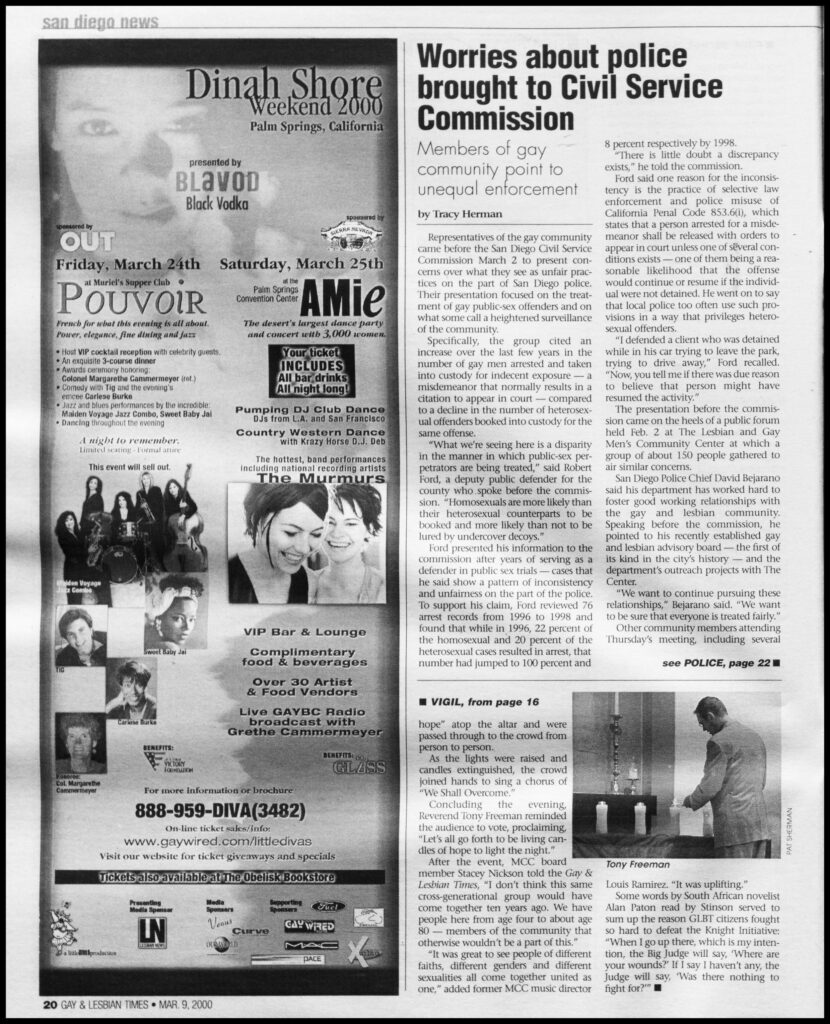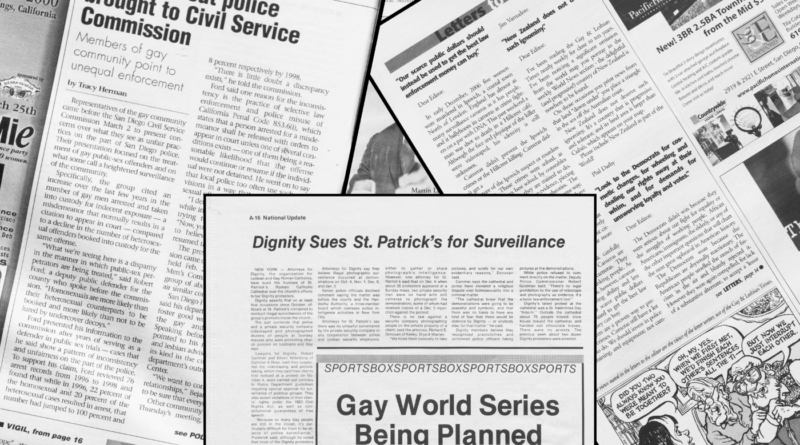SDPD Announces Surveillance Equipment Installation in Hillcrest
By Nicole M. Verdes
The San Diego Police Department recently announced that it would begin installing surveillance-equipped streetlights and automated license plate readers in Hillcrest and other locations ahead of Pride weekend. The fact that this is happening at all should alarm every single person in the LGBTQ+ community, but what truly adds insult to injury is that this move by law enforcement is being touted as one designed to help protect our community right before…Pride? The misuse of surveillance recordings perpetuates harmful stereotypes and biases, further marginalizing and stigmatizing already vulnerable populations. This constant scrutiny undermines efforts to create safe and inclusive environments, ultimately exacerbating social and systemic inequities.

Historically, surveillance of our community has resulted in loss of employment, being labeled mentally ill, being seen as criminals under state laws, and being subjected to harmful targeting by the FBI. Some of these issues seem far off in distant memory (Lavender Scare? Stonewall Rebellion? Anyone?). If you’re reading this and thinking: “That was a long time ago. We’ve made so much progress. These things don’t happen anymore.” Think again. Just this year, law enforcement in Seattle used digital surveillance disguised as “routine inspections” to accuse queer folks in bars of lewd conduct, which included the wearing of jock straps. Ultimately, and only after the queer community in Seattle organized and spoke out against this draconian method of surveillance, the Washington Liquor and Cannabis Board agreed that it wouldn’t issue violations for any of the potential infractions observed by officers during the raids they conducted throughout one weekend. Seattle bar owners celebrated the decision with a statement that said, “This is a huge victory for queer people, queer spaces, and queer self-expression.” And it was.

Surveillance has long been detrimental to the LGBTQ+ communities, particularly to trans and nonbinary folks of color. History has taught us this, and the data prove it. “Injustice at Every Turn: A Report of the National Transgender Discrimination Survey,” the most significant national report on transgender people, provides clear and irrefutable data showing that 22 percent of respondents who have interacted with police reported experiencing bias-based harassment. That number increases substantially for transgender people of color (e.g., “Walking While Trans”).
The American Civil Liberties Union (ACLU) has long been at the forefront of challenging invasive surveillance practices. The ACLU has published numerous reports and conducted extensive research that highlights the disproportionate impact of surveillance on marginalized communities, including LGBTQ+ individuals. Their data-backed efforts provide crucial evidence that such practices fail to enhance public safety, infringe upon civil liberties, and exacerbate existing inequalities. The ACLU’s advocacy underscores the urgent need to protect our community from the overreach of surveillance technologies.

The failure to learn from our history about the past abuse of such surveillance tactics will almost certainly result in further perpetuating the harm against our trans, nonbinary, and queer communities of color. To be clear, oppressive and harmful surveillance that disproportionately harms some people in the LGBTQ+ community should be of great concern to all of us. Suppose you don’t feel that it affects you personally and, therefore, aren’t able to truly recognize how the installation of this proposed digital surveillance could be abused and used to harm our community. In that case, there’s a word for that: privilege. The privilege of not having to worry about issues that don’t affect you directly does not absolve anyone from the responsibility to stand against injustices that impact our community.

We must take immediate action to protect ourselves and our community. First, educate yourself and others about the insidious nature of increased surveillance and how it is weaponized against us. Second, join or support local advocacy groups actively resisting these oppressive practices. To those in power: it’s time to stop hiding behind the guise of “safety” and start protecting the rights of all your citizens. To the larger community, remember that surveillance begets surveillance. While you might rationalize a geographically limited use with an outwardly laudable purpose, e.g., “safety,” the expansion of surveillance technologies will continue unless we speak out. And to my queer family: stay vigilant, stay loud, and stay safe—because we know we can’t rely on anyone else to do it for us.

